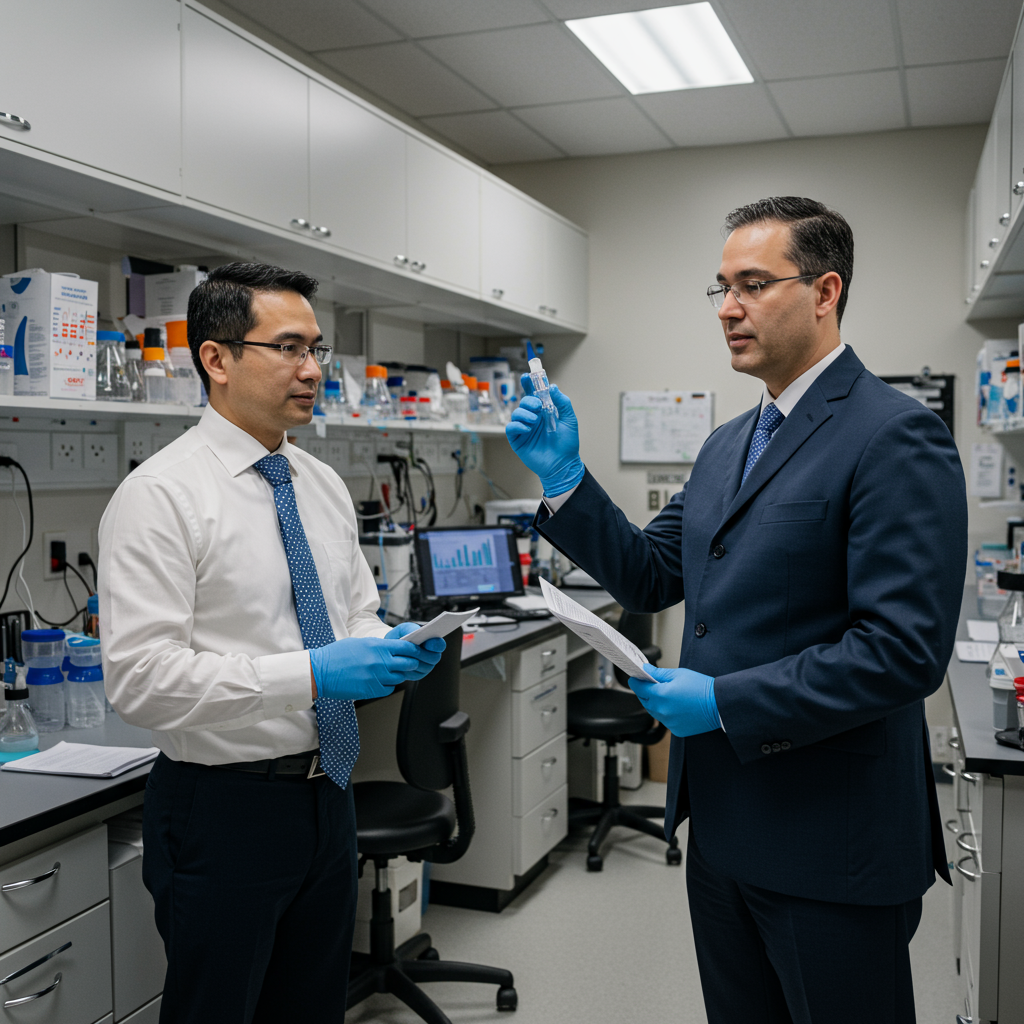A fundamental transformation is underway in America’s vaccine policy infrastructure. Under the leadership of Health Secretary Robert F. Kennedy Jr., the nation witnessed a significant shake-up of the Centers for Disease Control and Prevention’s (CDC) key vaccine advisory panel. The implications of these changes, particularly as seen in the first meeting of the newly appointed committee, are causing widespread concern among public health experts. This shift suggests a departure from the long-standing, evidence-based process that has guided U.S. immunization recommendations for decades.
RFK Jr. Reshapes Vaccine Oversight
The catalyst for this upheaval occurred swiftly in June 2025. On June 9th, Secretary Kennedy dismissed all 17 voting members of the CDC’s Advisory Committee on Immunization Practices (ACIP). This panel traditionally holds immense authority, shaping vaccine recommendations that influence insurance coverage and access for millions, including mandated <a href="https://news.quantosei.com/2025/06/28/what-is-thimerosal-what-the-research-says-about-the-vaccine-preservative-under-fire-by-rfk-jr/" title="Proven Thimerosal safety: Vaccine Preservative Facts”>vaccines for children on Medicaid. Just two days later, a significantly smaller group of replacements, hand-selected by Kennedy, was appointed. Many of these new members had previously expressed skepticism regarding vaccine safety or held ties to organizations critical of conventional vaccine policy.
Further actions underscored the speed and breadth of the changes. Kennedy’s office terminated over $1 billion in U.S. funding allocated to Gavi, a global health alliance dedicated to vaccinating children worldwide. Additionally, Lyn Redwood, formerly the president of Children’s Health Defense – an anti-vaccine group Kennedy once chaired – was brought on as a special government employee. Redwood later played a prominent role in the inaugural ACIP meeting. Transparency concerns also arose when a scientific document from the ACIP website, affirming the safety of thimerosal (a vaccine preservative), was reportedly removed because it “was not authorized by the office of the secretary,” although HHS stated it was provided to members in briefing packets.
The First Meeting: A Discomfiting Spectacle
The first gathering of the revamped ACIP committee took place in Atlanta, marked by numerous empty seats. The atmosphere was immediately perceived as discomfiting by observers. Martin Kulldorff, a biostatistician known for his contrarian views on COVID-19 policy and a co-author of the Great Barrington Declaration, chaired the meeting. He opened by lamenting media criticism of the new members, arguing that journalists were misleading the public, eroding trust in public health, and exacerbating vaccine hesitancy. This initial statement, though pugnacious, set a tone described by some attendees as one of “fearmongering gentility” rather than direct confrontation.
The meeting’s agenda was set against the backdrop of the swift changes orchestrated by the Secretary’s office. While discussions touched on various topics, the most revealing moments came during exchanges between the new committee members and the CDC’s career scientists. The core tension lay in the committee’s posture towards the evidence presented by CDC staff, which often appeared to be met with skepticism and doubt rather than standard scientific inquiry.
Skepticism Takes the Floor
Among the new appointees, several stood out for their questioning style and the nature of their concerns. Robert Malone, a figure who has embraced the “anti-vaccine” label and authored a book featuring government conspiracy theories, frequently voiced safety intimations. Despite his polite demeanor, often thanking CDC staff, he floated hypotheses about potential vaccine harms. For instance, Malone questioned whether spike proteins from mRNA COVID vaccines could linger in the body, suggesting more study of possible “delayed effects” was needed. CDC experts responded by highlighting nearly five years of real-world safety data showing no signs of long-term harm, noting their “world-leading, rigorous” monitoring approach.
Malone also speculated about the possibility that COVID-19 or its treatments might have indirectly increased susceptibility to other illnesses. He cited a perceived “paradoxical, sudden decrease” in flu cases during 2020-2021 followed by worsening trends. CDC staff countered that the flu decrease wasn’t a paradox but a result of well-documented behavioral changes during the pandemic. Despite this, Malone pressed the agency to be “sensitive” to his hypothesis, which he claimed was shared by “some members of the scientific community,” suggesting exposure to the virus or “countermeasures” might have led to “broad-based, uh, energy” contributing to increased flu severity.
The Most Vocal Questioner
Perhaps the most overtly challenging appointee was Retsef Levi, an MIT business-school professor with a background in data modeling and risk management. Described as approaching the proceedings with “swaggering incredulity,” Levi questioned CDC staff efforts and highlighted potential systematic errors in their thinking. Levi’s public stance is firmly anti-vaccine; his X profile explicitly states that “the evidence is mounting and indisputable that mRNA vaccines cause serious harm including death,” a view contradicting extensive data reviewed at the meeting.
During the discussion of a new monoclonal antibody to prevent RSV in infants, Levi voiced concerns based on his personal review of clinical trial data. Despite this data having undergone extensive review by both the FDA during approval and the ACIP’s dedicated RSV work group – which concluded benefits outweighed risks – Levi asked if there weren’t potential “safety signals.” He disregarded references to prior work, stating he was both a scientist and a father of six, and speaking as a father, he would be concerned about the risk.
Contentious Votes and Striking Dissent
The meeting included several key votes. The committee voted 6-0 to recommend annual influenza vaccines for all Americans aged 6 months and older, a standard public health recommendation. A new monoclonal antibody for RSV prevention in infants was recommended by a 5-2 vote, with Levi and Vicky Pebsworth voting no. Pebsworth serves on the board of an anti-vaccine organization.
However, the most contentious issue centered on thimerosal, a mercury-based preservative used in some multi-dose flu vaccine vials. Despite decades of extensive study affirming thimerosal safety in vaccines – showing no link to autism or neurological harm beyond minor injection site reactions – a vote recommending against the use of thimerosal-containing flu shots was placed on the agenda. Crucially, this vote occurred without the standard ACIP procedure of a preceding work-group study or presentation from CDC staff scientists outlining the comprehensive scientific evidence on thimerosal safety. Instead, information primarily came from Lyn Redwood’s presentation, which was later described as based on “junk data,” “cherry-picked” information, and “old and fringe studies.” A Reuters report noted one citation in her presentation was invented, though it was removed before she spoke.
The Lone Voice for Evidence
Dr. Cody Meissner, a pediatrician and the only new appointee with prior ACIP service, appeared perplexed and pained by the direction of the discussion, particularly concerning thimerosal. When Redwood finished her presentation, Meissner commented, “I’m not quite sure how to respond to this presentation.” He firmly reiterated, “ACIP makes recommendations based on scientific evidence as much as possible. And there is no scientific evidence that thimerosal has caused a problem.” He further explained that vaccine thimerosal is metabolized into ethylmercury, which is quickly excreted, unlike the highly neurotoxic methylmercury found in fish. He stressed that the risk of influenza significantly outweighs any “non-existing risk” from thimerosal.
Meissner’s arguments, however, were largely ignored or “bulldozed over.” He seemed to be the committee’s last vestige of traditional, evidence-based expertise. Ultimately, he cast the sole dissenting vote on the resolutions concerning thimerosal, with the committee voting 5-1, with one abstention, against recommending thimerosal-containing flu vaccines. Meissner also raised concerns that discouraging thimerosal-containing vaccines could increase costs and reduce global access, as multi-dose vials are often used for cost-effectiveness in other countries. A heated exchange also reportedly occurred during the meeting when Robert Malone described 250 pediatric flu deaths in the most recent season as a “modest number,” which was immediately challenged by another expert highlighting it as the highest number since 2009.
The Process Under Scrutiny
Throughout the two-day meeting, Chair Martin Kulldorff frequently invoked the phrase “evidence-based medicine,” stating it was the committee’s mandate. However, observers like Laura Morris, a liaison from the American Academy of Family Physicians with extensive experience attending ACIP meetings, noted a significant departure from this principle. Morris told the author that decisions seemed based on “feelings and preferences rather than evidence,” contrasting this with the CDC staff’s efforts to maintain an evidence-based approach.
The process itself bypassed the exhaustive review of safety, efficacy, benefits/harms, equity, and feasibility data that ACIP normally undertakes before making major recommendations. Instead, the thimerosal decision, for example, relied heavily on a single, unvetted presentation. The reported removal of the CDC’s comprehensive background document on thimerosal safety from the meeting materials before the session began further fueled concerns about transparency and the integrity of the process under the Secretary’s office. There were also hints of future controversial votes, such as Kulldorff reportedly previewing a potential move to remove the recommendation for the MMRV vaccine.
Implications for Public Health
The first meeting of the new ACIP committee offered a stark glimpse into the fundamental changes occurring within U.S. vaccine policy under Health Secretary Robert F. Kennedy Jr. Experts voiced concerns that prioritizing skepticism and personal analyses over established scientific consensus and rigorous review processes is a “dangerous way to make public-health policy.”
Recommending against thimerosal, despite overwhelming evidence of its safety and the historical context of its precautionary removal from childhood vaccines, risks signaling unwarranted safety concerns to the public. This could fuel further vaccine distrust, potentially leading to decreased vaccination rates and increased preventable illnesses and deaths. Furthermore, discouraging thimerosal use could impact global health efforts by increasing vaccine costs and reducing access in other countries that rely on ACIP recommendations and multi-dose vials. The events of this meeting suggest a significant shift away from the traditional scientific bedrock of America’s immunization guidelines, raising serious questions about the future of public health in the United States and beyond.
Frequently Asked Questions
Why did the new CDC vaccine committee vote against recommending thimerosal in flu shots?
The Advisory Committee on Immunization Practices (ACIP) voted 5-1 with one abstention in June 2025 against recommending flu shots containing thimerosal. This decision followed a presentation based on disputed data from an anti-vaccine advocate, despite decades of scientific consensus affirming thimerosal’s safety in vaccines. Experts noted the vote occurred without the standard comprehensive review of safety data typically preceding such recommendations.
How is the new ACIP approach changing how vaccine decisions are made?
Experts and observers noted a significant shift in the ACIP’s approach under the new leadership. Decisions during the first meeting appeared less focused on the rigorous, evidence-based data review process historically employed by the committee and its work groups. Instead, there were instances of relying on personal analysis and unvetted presentations, leading to concerns that decisions were influenced by “feelings and preferences rather than evidence,” potentially compromising scientific integrity.
Is thimerosal in vaccines considered safe by public health experts?
Yes, public health experts, including the FDA and CDC, confirm that thimerosal in vaccines is safe. Extensive studies over decades have found no evidence linking it to autism or other neurological issues; it is associated only with minor reactions at the injection site. Thimerosal in vaccines is metabolized into ethylmercury, which the body quickly excretes, unlike the neurotoxic methylmercury found in some foods. It was removed from most childhood vaccines as a precautionary measure, not due to evidence of harm.




